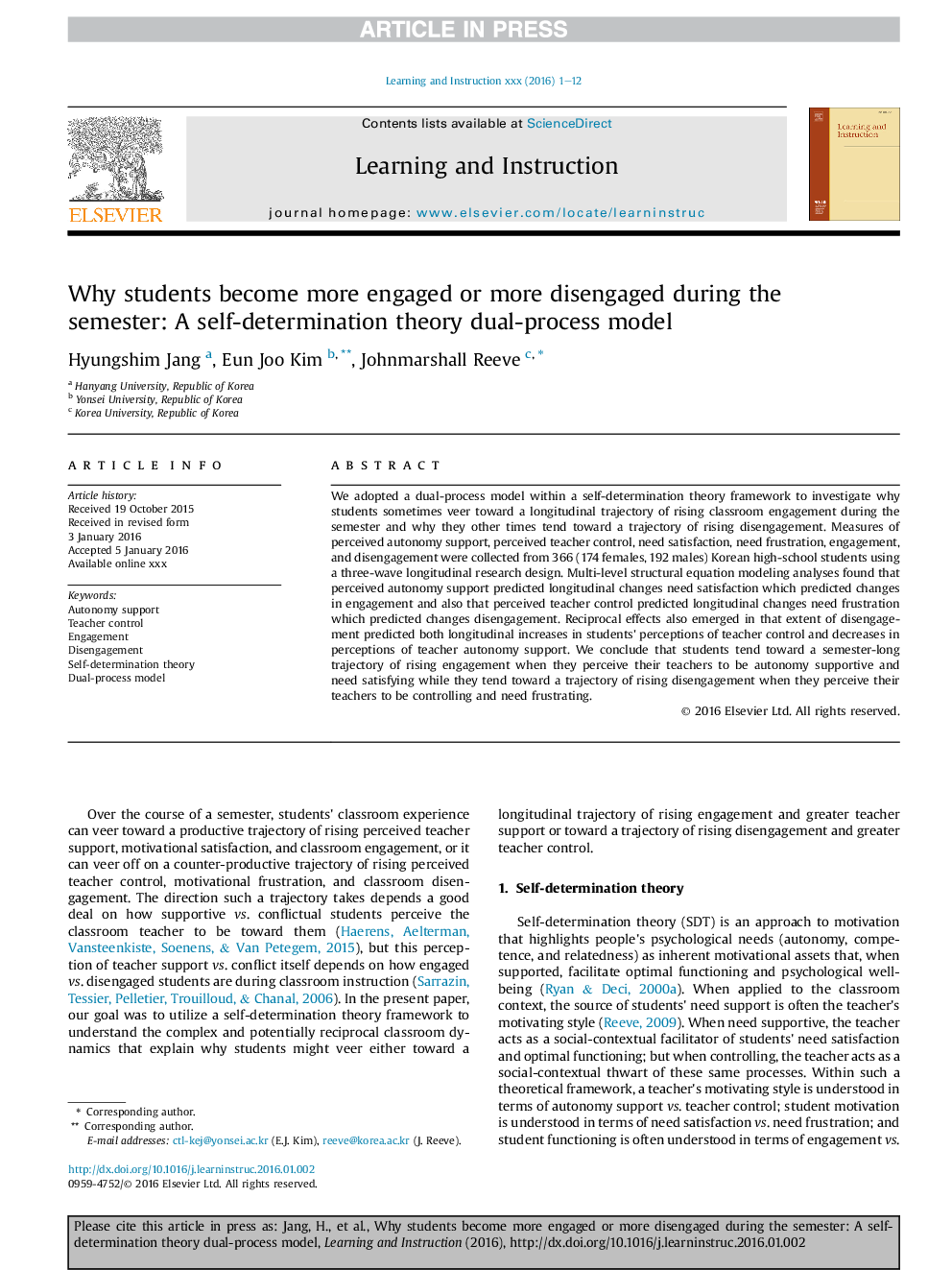| Article ID | Journal | Published Year | Pages | File Type |
|---|---|---|---|---|
| 6845752 | Learning and Instruction | 2016 | 12 Pages |
Abstract
We adopted a dual-process model within a self-determination theory framework to investigate why students sometimes veer toward a longitudinal trajectory of rising classroom engagement during the semester and why they other times tend toward a trajectory of rising disengagement. Measures of perceived autonomy support, perceived teacher control, need satisfaction, need frustration, engagement, and disengagement were collected from 366 (174 females, 192 males) Korean high-school students using a three-wave longitudinal research design. Multi-level structural equation modeling analyses found that perceived autonomy support predicted longitudinal changes need satisfaction which predicted changes in engagement and also that perceived teacher control predicted longitudinal changes need frustration which predicted changes disengagement. Reciprocal effects also emerged in that extent of disengagement predicted both longitudinal increases in students' perceptions of teacher control and decreases in perceptions of teacher autonomy support. We conclude that students tend toward a semester-long trajectory of rising engagement when they perceive their teachers to be autonomy supportive and need satisfying while they tend toward a trajectory of rising disengagement when they perceive their teachers to be controlling and need frustrating.
Keywords
Related Topics
Social Sciences and Humanities
Psychology
Developmental and Educational Psychology
Authors
Hyungshim Jang, Eun Joo Kim, Johnmarshall Reeve,
